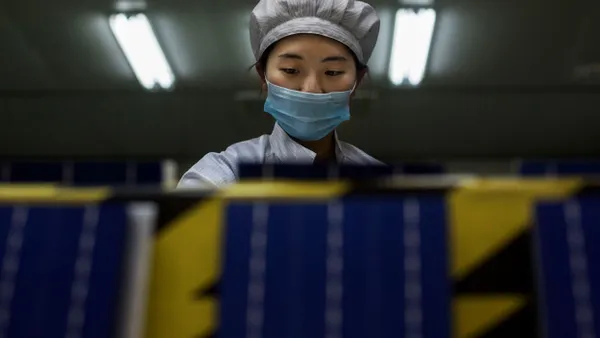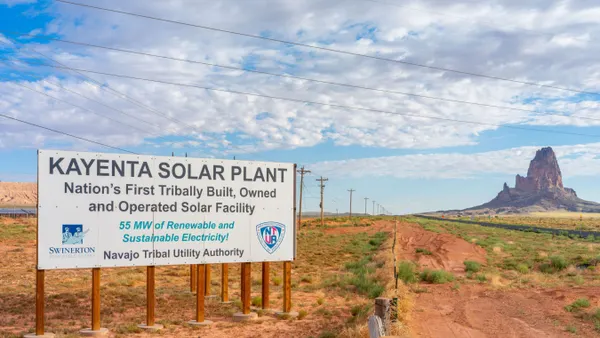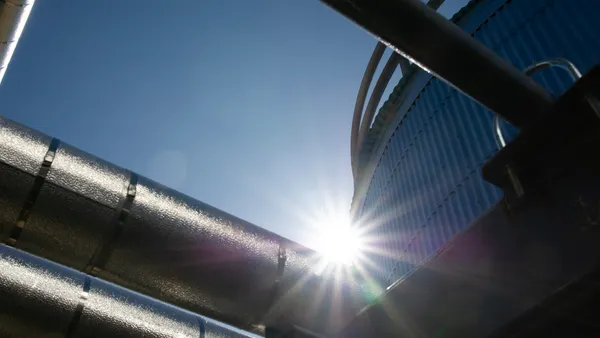Dive Brief:
- Renewable energy executives speaking at the American Council on Renewable Energy’s annual policy forum Thursday praised the wide benefits of the Inflation Reduction Act, but expressed concerns about delayed guidance for certain tax credits and shifting trade policy.
- “The IRA did a lot for the generation side of the sector,” said Tom Starrs, vice president of government and public affairs at EDP Renewables North America. “But it did very little for some other key elements.”
- Sen. Sheldon Whitehouse, D-R.I., and Sarah Hunt, president of the Joseph Rainey Center for Public Policy, both said during the event that they don’t anticipate Republicans rolling back the IRA — even if the party wins both chambers of Congress and the White House in November.
Dive Insight:
“I think [the IRA] is going to be a little bit like Obamacare,” Whitehouse said. “To be a Republican you had to hate Obamacare, and you had to say that you wanted to repeal Obamacare, until a certain tipping point of constituents were enjoying the benefits of Obamacare and thought it was a pretty good deal.”
He added that he sees a similar trajectory for the IRA, due to the fact that “so much of what it funds is happening in districts where it's going to be very hard for a member to go back and vote against the IRA after they attended a ribbon-cutting for a significant project announcement.”
In the event that Donald Trump is re-elected, Hunt said she is less concerned about a repeal of the IRA than she is about the availability of critical minerals. Trump was opposed to the U.S. continuing to rely on imports of critical minerals from China, and in 2020 issued an executive action declaring a national emergency “to deal with the threat.”
“To me, the IRA is about mining our way out of climate change, and we have these tensions with China,” she said. “The fact is, around 87% of the world's critical minerals are mined or refined in China .... The Saudis have, of course, been raising their hand. I think in a second Trump administration, there might be some kind of deal made [with Saudi Arabia about] critical mineral refining, which is important to clean energy development.”
The forum hosted speeches from keynote speakers interspersed with panel discussions on the topic of maintaining progress on IRA implementation. The necessity of balancing foreign trade with domestic manufacturing was discussed in several of the panels, particularly in regard to the solar industry. A set of Section 201 tariffs on imported crystalline silicon cell and module imports, established in 2018 and extended through 2026, are currently up for a midterm review by President Joe Biden.
The industry is also looking ahead to the June expiration of a moratorium on import duties on panels from four Southeast Asian countries that the U.S. Department of Commerce found circumvented tariffs on Chinese-made components.
“From a business perspective, the volatility and uncertainty associated with those tariff measures is crazy,” Starrs said.
These measures “caused a tremendous amount of disruption in the solar supply chain that was exacerbated during the COVID crisis by other supply chain challenges that have nothing to do with trade measures,” he added.
“We maybe celebrated the passage of the IRA a little bit too early,” he said. “I’m hearing talk — and I'm struggling to embrace this — about the need for additional tariff measures on top of, not instead of, on top of the very substantial subsidies associated with the IRA in order to further drive domestic manufacturing.”
Jessica Lawrence-Vaca, senior vice president of policy and external affairs at Array Technologies, said that even when a trade measure specifically targets modules, it “impacts the entire industry, from deployment to manufacturers, to the steel industry, to everybody along the way …. These trade cases that are initiated by one company often have these massive ripple effects that we feel across the entire solar sector.”
Lawrence-Vaca also noted that there is not yet “full, clear guidance” on the IRA’s 45X advanced manufacturing production credit, or the domestic content bonus credit.
“A lot of our supply chain is already here,” she said. “We're expanding our manufacturing facility in New Mexico, we have a lot of really exciting things that are happening because of those investments. But until all of the guidance is done and set in stone, and we can figure out how to navigate it, that still is going to be a little bit of a hurdle in the road.”
Katie Heath, general counsel at Copia Power, said the lack of final guidance for some aspects of the IRA has led to challenges in negotiating with contractors and potential investors, which the company has addressed by having “a lot of conversations very early in the process.”
“But I would say one of the positive notes is that all of the people in this room, in this industry, are working together to try to create a comprehensive solution until we do have better guidance,” she said.















